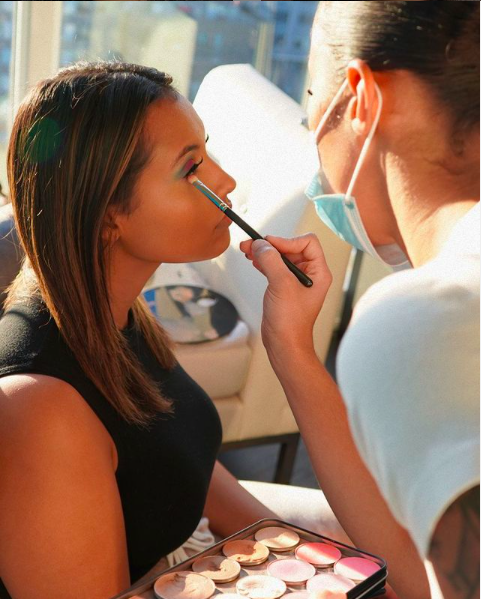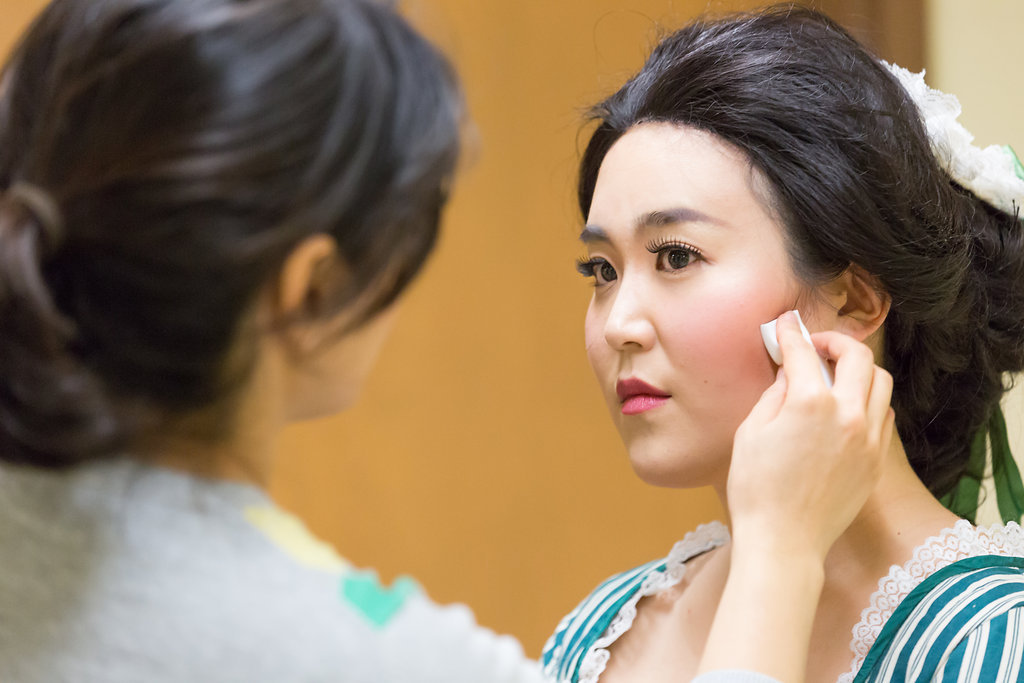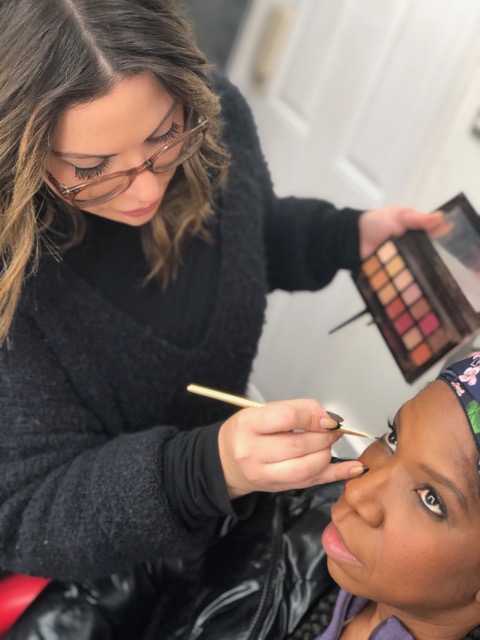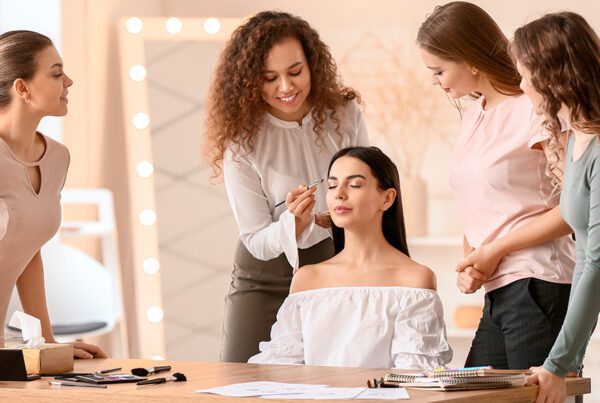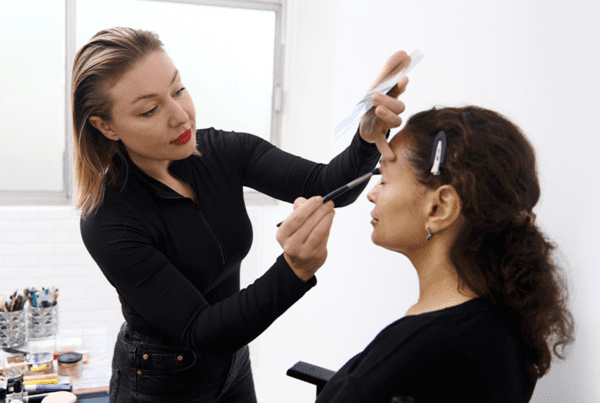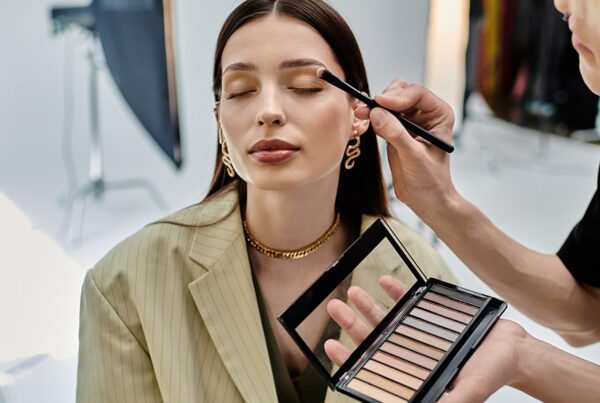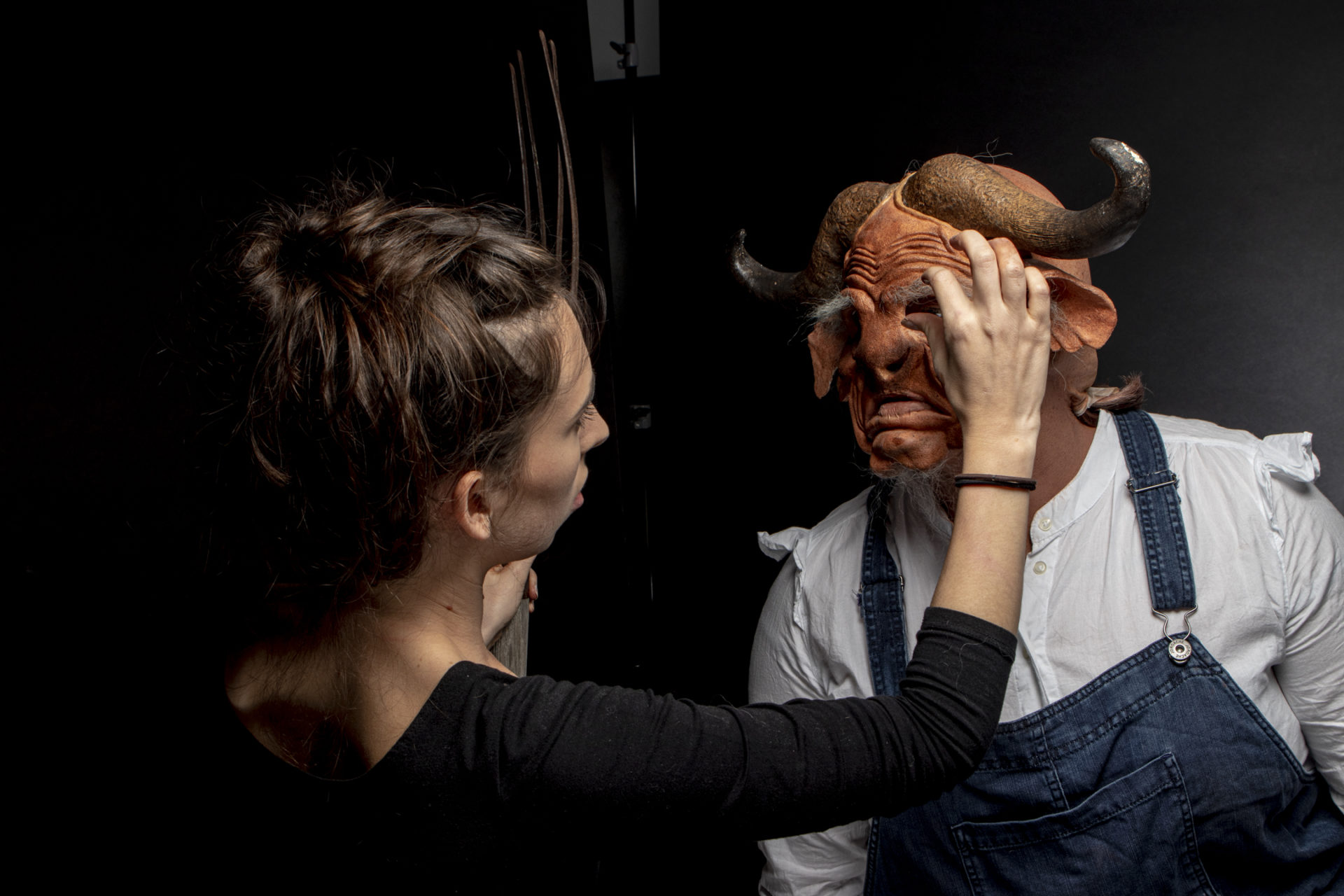
Whatever the event may be, it is the business of a makeup artist to ensure that their client looks and feels their absolute best.
The most talented makeup artists excel in their technical skills and possess various other crucial soft skills that allow them to perform their jobs effectively.
This post will go through the essential skills required for a successful makeup artist career and how to get the proper training to succeed in the beauty industry.
Creative Imagination
A creative imagination is essential for success in the beauty industry, just like any other artistic vocation. You need to be able to visualize ideas to become a makeup artist, and having that eye for creativity is the most fundamental quality that you should have as an aspiring makeup artist.
Evaluate your creative potential and determine how far you are ready to push it before you take your initial steps towards a career in professional makeup artistry.
Attention to Detail
When applying makeup, you frequently need to go beyond the expectations set for you. Sometimes, you may need to improvise if unexpected situations arise.
Proper training can help you maintain a thorough approach to your work, even while working under intense time constraints. This is especially crucial in professions such as film or editorial makeup, where your work may change quickly depending on the project.
The mark of a skilled makeup artist is evidenced by their capacity to maintain concentration, reason, and effectively find solutions to problems in such cases.
Makeup Theory
Once you’ve decided to pursue a career as a makeup artist, you should first familiarize yourself with the fundamental concepts underpinning makeup artistry.
The practical side of the industry can be better understood by observing an experienced makeup artist. Nevertheless, retaining what you learn may be more difficult without a solid theoretical background.
To ensure you have a good understanding of makeup theory, enroll at a reputable makeup college that will teach you the philosophy behind how each product is applied, including the tools used, the products ideal for specific skin types, the time of day, and the occasion, etc. Once you have a better understanding of these techniques and theories, you will start to appreciate the craft more.
A well-designed makeup lesson will also introduce you to colour theory, which will teach you how to utilize undertones that will further enhance the results of the coverage.
To properly apply makeup, you should also be familiar with the many skin types, including their colour, condition, and sensitivity, and the bone structure of each face shape. The more knowledge you can demonstrate, the more the client will trust you.
Confidence
A professional makeup artist’s job is not one of isolation; rather, it requires tight collaboration with a wide range of people, including clients, photographers, stylists, models, and celebrities.
As a makeup artist, it is essential to the process of applying makeup that one understands the requirements and goals of each client or project. In addition, to be taken seriously as a professional, you need to be courteous but demonstrate confidence when making recommendations for changes, providing criticism, and so on.
Confidence not only plays a part in communicating with individuals in the industry, but it can also play a significant role in just how far one takes their creativity and skillset. With confidence in your craft, you can take on any job or skill and become a better makeup artist at the end of it.
Customer Service
Makeup artists are expected to spend significant time working closely with their clients. When dealing with customers, it is of the utmost importance to put them at ease and to know their expectations.
Building trust is crucial, as is being aware of what works for them and methodically securing their buy-in. If you provide excellent service to your clients, you will not only be able to maintain long-term relationships with them, but they will also be more likely to refer their friends and family to your business.
Communication Skills
Working as a professional makeup artist entails tight collaboration with clients, photographers, stylists, models, celebrities, etc. Understanding each customer or project’s preferences and style is essential to ensure your work is tailored to their liking.
As a professional, you must also have tact and self-assurance when making suggestions for changes, providing criticism, etc.
Artist: Lateisha Grant
Time Management
Makeup artists will work under extremely tight time constraints most of the time. Therefore, effectively managing your time is essential for any makeup artist, whether working at a wedding, on a photo shoot, or at someone’s home.
This requires you to not only make sure that you have all of the tools necessary for a beautiful result that is in line with the expectations of the client but also to think quickly on your feet and be ready for any emergency or incident that may arise.
Assertiveness
Assertiveness is another beneficial skill for a makeup artist to acquire. Between standing out for job opportunities and being direct with steps that need to be done in order for a job to go smoothly, being assertive can make a world of difference.
Getting in touch with models and photographers looking for a makeup artist, approaching event and wedding venues, wedding planners, hair salons, and simply providing makeup for friends and family are all strategies to gain new clients. Never underestimate the importance of industry connections.
Setting Boundaries
As with any job, setting boundaries can be an extremely beneficial skill for makeup artists to have.
Whether you are a freelance makeup artist or you’re working on the set of a major TV show, having boundaries on how many tasks you can complete or jobs you can take on is a must. By setting boundaries early on, you can ensure that quality is always at the forefront of your mind.
This goes beyond overloading your client list. Setting boundaries can also come in the form of knowing where your skillset ends. Be honest about your makeup artistry talents and services. If you’re good with airbrush, glamor, and everyday makeup, but not bridal, don’t take on weddings.
Saying no may seem counterintuitive to a makeup artist trying to build their portfolio, but saying no is sometimes wise. When you decline a client, you make way for others. Focusing on your strengths will help you do your best work, boosting your reputation and client base through word of mouth.
Consider these limits stepping stones to becoming the best makeup artist you can be. Knowing your skills will help you gain clients and advance your career in the beauty industry.
Interpersonal skills
You are an entrepreneur, a sales representative, and a marketer for yourself as a makeup artist. Your job will require you to create relationships with clients from when you book the task until it is completed. Improving your interpersonal skills will ensure that the client remembers you in the future.
Furthermore, solid interpersonal skills will aid in making clients feel at ease as you complete their makeup for them, which can drastically enhance the experience for them.
Another benefit to interpersonal skills is that you’re better able to deliver the look that’s needed by being able to communicate with someone you have a strong relationship with. This can become beneficial in the long run as individuals appreciate the work that was done and may refer you to friends down the line.
Keep Up-to-Date with New Trends
There is always some new makeup trend that people start talking about in the beauty industry. For example, the euphoria-inspired bright makeup style could be popular one day, then a natural look the next.
To be successful as a makeup artist, one needs to be abreast of the latest trends and constantly educate themselves on new makeup application techniques and products.
In addition, your clients will look to you for advice on the latest trends in hair and makeup, and they may even ask you to imitate the look of a particular celebrity.
If this happens, demonstrating that you are up to date on the latest trends in the beauty industry is essential to attracting clients and maintaining a professional image.
Ability to Work Well Under Pressure
Makeup artists are expected to be prepared to adapt to the shifting needs of their clients swiftly and to be flexible enough to quickly adjust their practices in line with the comfort and requirements of their customers.
Working in the beauty industry often requires adapting to a changing schedule. For example, the bride might be running late, and you would have to rush through the makeup of the bridal party because the wedding is about to start. Or, the weather might change in the middle of a photo shoot, which may require you to rethink the overall look.
Makeup artists must be ready for such scenarios and react swiftly to continue the task to the highest standard possible.
Face Shape Analysis
Facial analysis is an essential technique if makeup artists wish to meet the standards set by their clients. As a professional makeup artist, you need to be able to recommend a makeup look that is desirable to each of your clients. In addition to keeping up with the latest trends, they want you to reflect their personality and sense of style.
In the field of aesthetics, the term “facial analysis” refers to a set of techniques intended to accentuate the face’s beauty through applying makeup. Facial analysis includes understanding the right makeup products, the application methods for each product, the impact of hair colour and skin tone, and the hairstyle.
Facial analysis techniques were developed to highlight the most appealing aspects of our faces based on four layers: bone structure, muscle tone, fat, and skin. Understanding the differences in face shape can better prepare you as a makeup artist.
Hygiene
Working with various individuals is part of the makeup artist job requirements. This means it’s critical to maintain proper hygiene at all times, for your own sake as well as the sake of your clients. Cleaning brushes, using single-use applicators, and maintaining personal hygiene while applying makeup are just some of the ways to practice good hygiene.
That being said, taking time to understand the dangers of having poor hygiene with makeup can make you more aware of the consequences that can arise without proper hygiene. This knowledge in itself can be used to provide a more hygienic experience for clients.
Colour Correcting
Colour correcting neutralizes skin discolouration. Dark circles, redness, hyperpigmentation, and bruising are examples.
Makeup artists utilize colour theory to choose concealer hues for various discolourations. For example, green concealer neutralizes redness, while yellow concealer reduces dark under-eye circles.
Without colour correction, concealer would look muddy and won’t hide defects well. The effect is uneven skin and cakey, heavy makeup.
Before taking on clients, learn colour correction basics.
Artist: Anahita Loghmanifar
Applying Makeup
Makeup artists are taught how to properly clean and tone, and moisturize the skin for various skin types before applying makeup. In addition, they practice using lip colour, eye and brow liner, blush, foundation, and other cosmetics.
They also learn how to modify makeup applications for different looks, including those for work, the evening, and other occasions. Beyond the fundamentals, they might study theatrical productions, bright and dim lighting, indoor and outdoor events, and high fashion runway looks.
Makeup artists can learn how to apply and touch up makeup for on-camera talent, picture sessions in various lighting circumstances, and indoor and outdoor stage performances.
Master Tools of the Trade
Mastering the tools used in makeup artistry is one of the essential skills needed. Makeup artists use various tools, including sponges, brushes, sophisticated airbrushes, and other makeup brush types. Aspiring artists will learn how to use all the brush types and the advantages and disadvantages of each one.
They might specialize in airbrushing tattoos to cover them up or applying makeup to hide flaws. Theater makeup artists may also utilize wigs, beards, artificial eyelashes, and prosthetic body parts to create a character’s look in addition to cosmetics.
Qualifications and Licensing
To be a successful makeup artist, you must have a robust portfolio , and most have college training or a certificate in cosmetology.
It is also possible to learn key skills in cosmetics by working in the field. However, some jobs require you to have a license, and the criteria for obtaining that license vary from location to location.
Most states require that you obtain a passing score on a written examination and spend around one thousand hours gaining knowledge, either in a classroom or on the job.
Choosing a well-designed makeup course and getting the right qualifications will support your journey to a successful career in makeup techniques and application.
Jobs as a Makeup Artist
There is a wide variety of jobs available to those skilled in the art of makeup application. Even though one makeup artist’s job can be very different from one another, each of these choices are incredibly fascinating.
Many successful makeup artists have numerous options to make money due to the multifaceted nature of the beauty industry. These sub-industries within the world of beauty will inspire you to become a certified makeup artist.
TV & Film
As a makeup artist in TV & film, you could work on the sets of movies, television shows, or commercials. In most scenarios, you will creatively apply makeup to individuals who are going to be recorded for said medium.
Creativity is required as a makeup artist in this industry, as you will need to transform the actor into the character that they’re playing, which often requires creating an entirely different personality through their appearance. This is a challenging yet exciting opportunity to develop your makeup transformation skills.
As your list of media credits grows, you can find yourself in a position to collaborate with celebrities and build up a strong portfolio in the entertainment industry.
Artist: Jaye Falcion
One exciting career path in the realm of TV and film is that of a digital effects makeup artist. This kind of makeup artist is responsible for creating some of the more colourful characters and effects on the big screen.
You’ll use a range of computer applications to create digital models for characters and creatures that just can’t be represented by traditional makeup alone. Embark on this path if you’re hoping to be a part of the next Star Wars or Lord of the Rings production!
Editorial & Fashion Shows
Working on high fashion runways as a makeup artist is not for everyone. The work is exciting and fast-paced but can also be stressful. In this realm of work, successful makeup artists will do makeup on models in a high-pressure environment.
If you are the leading makeup artist, you may be required to develop the makeup concept for fashion shows. These makeup applications have an impact on the upcoming season’s trends, so you can expect to be making bold, thrilling, and even controversial looks.
If you work for a fashion or magazine publication, you will either work on editorial looks, which are more avant-garde than commercial looks. Your task as a makeup artist is to develop a dramatic look to help express the editor’s story.
Bridal and Formal Events
The gorgeous looks that bridal makeup artists create for brides on their wedding days and bridal photo shoots are their areas of expertise.
Today’s brides frequently opt for a professional makeup artist on their wedding day, not just for themselves but their entire bridal party, making this a profitable market for makeup artists to consider.
 Enroll in a Makeup Artistry Program at CMU College
Enroll in a Makeup Artistry Program at CMU College
If you are a very creative individual, a well-designed makeup program can prepare you for expertise in the industry. To get started on your route to becoming a makeup artist, contact CMU College.
Become a successful makeup artist by enrolling in one of the various makeup artistry courses or programs offered at CMU College. Specialize in the art of cosmetics application and obtain a certificate, diploma, or degree in makeup artistry

